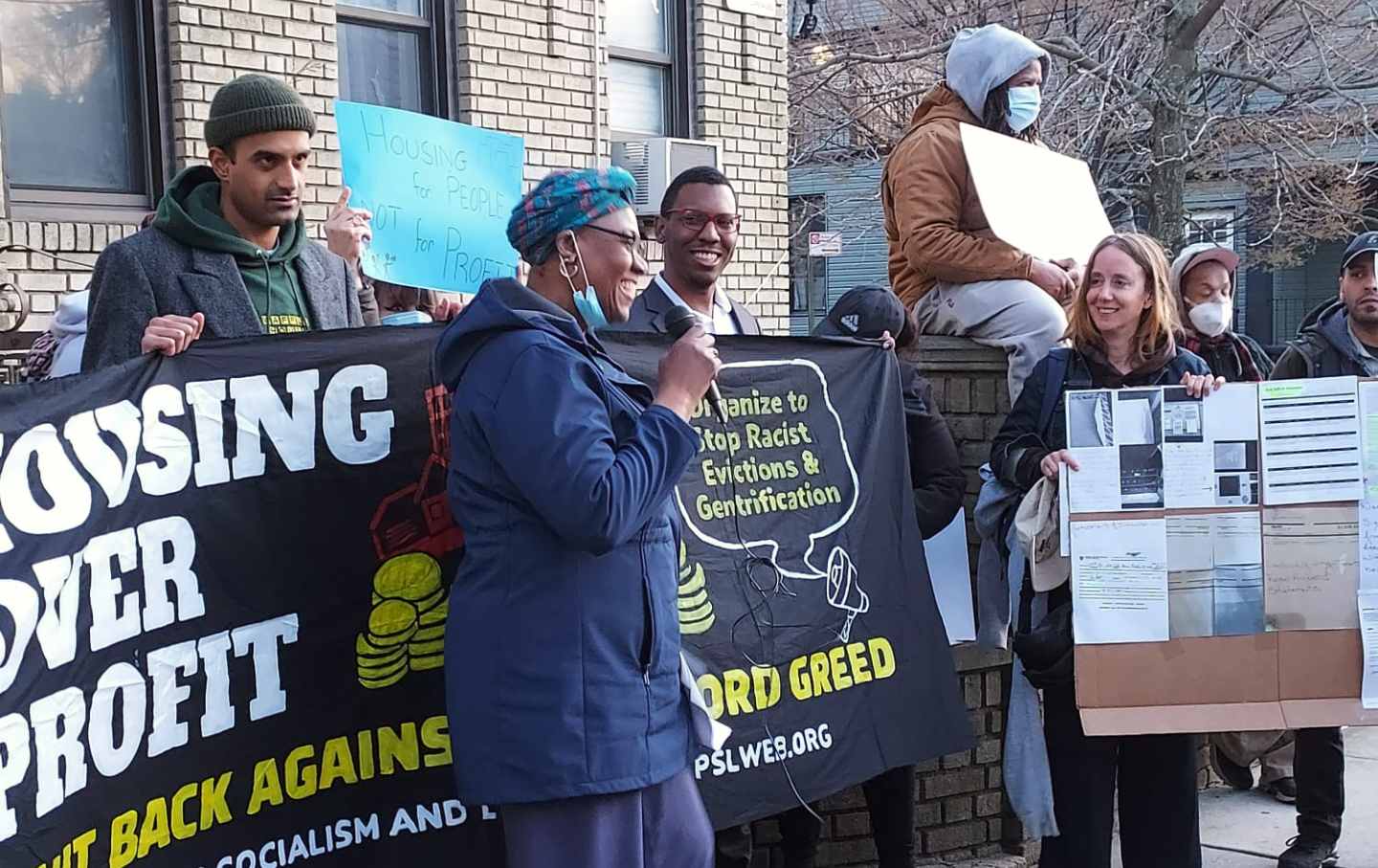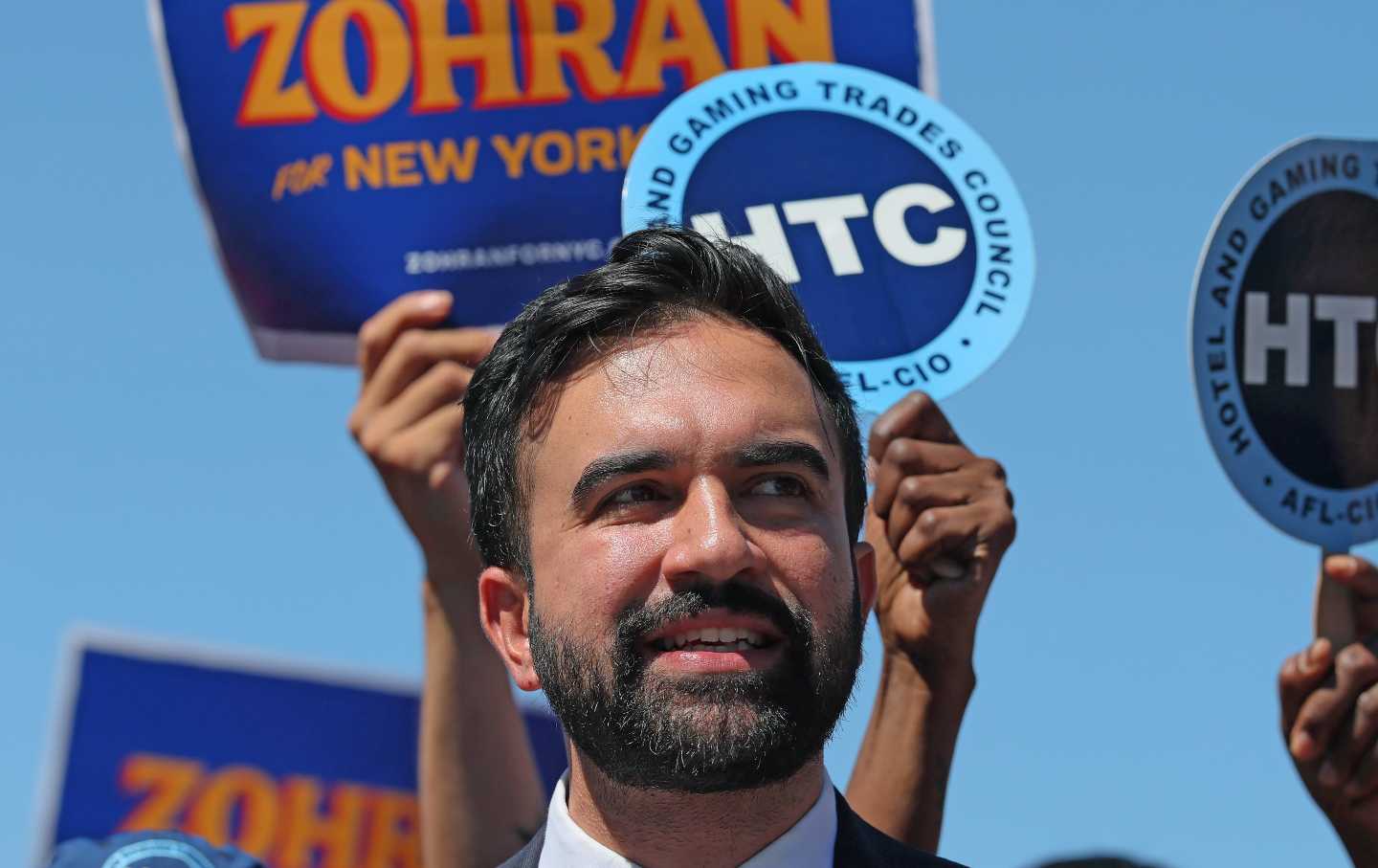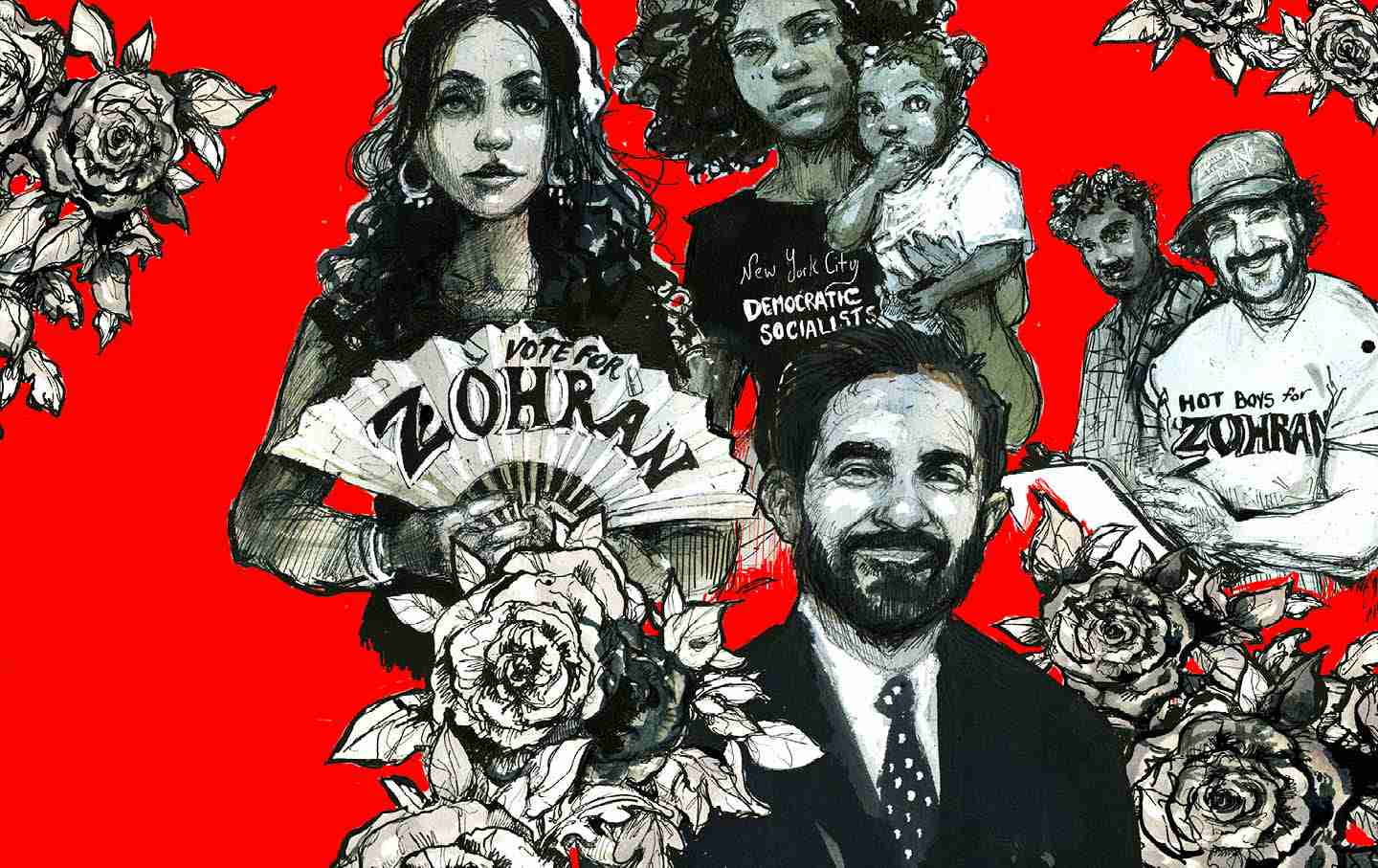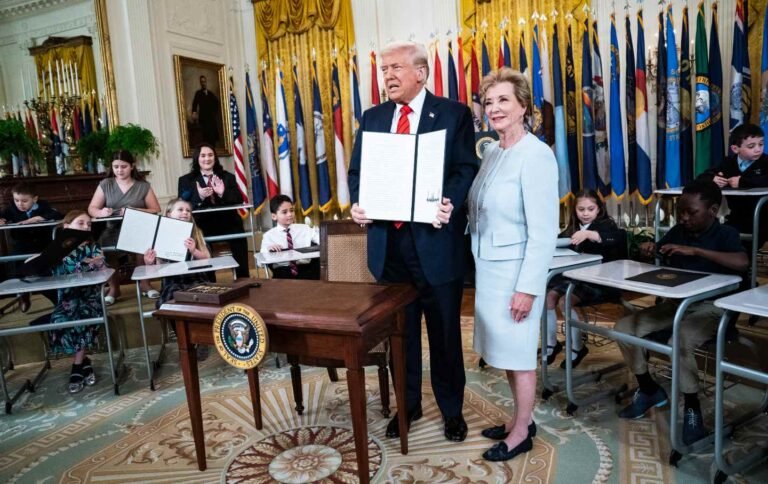Politics
/
StudentNation
/
September 10, 2025
Changes to the Public Service Loan Forgiveness Program could deem organizations and governments “ineligible employers” if they don’t align themselves with the president’s agenda.
President Trump poses with Secretary of Education Linda McMahon after signing an executive order aimed at closing the Education Department.
(Jabin Botsford / Getty)
The Public Service Loan Forgiveness Program was created 20 years ago with bipartisan support, originally designed to forgive any remaining balance on the student loans of borrowers who have made 120 on-time monthly payments while being employed in the public sector. This program offered substantial relief for employees of nonprofit organizations, alongside all forms of government including city, local, state, tribal, and federal government.
But access to the program may soon be stripped away from millions of Americans.
In March, the Trump Administration began its attempt to dismantle the Department of Education when they fired nearly half its staff, which has led to significant delays in Income-Driven Repayment applications. The latest target in the administration’s attempt to gut the department is the Public Service Loan Forgiveness Program.
On August 18, the department published its preliminary rule stating its proposed changes to the Public Service Loan Forgiveness Program, a result of the most recent Negotiated Rulemaking—or Neg Reg—session. Neg Reg is a consensus-based process that the federal government undertakes to modify regulations governing a federal department or office.
These new changes aim to deem organizations and governments as “ineligible employers” if they are not aligned with the Trump administration’s agenda. Countless employers would be labeled ineligible PSLF employers with no appeals process, leaving millions of borrowers to bear an avoidable financial burden.
According to the published preliminary rule, “in cases where an employer is deemed to have engaged in activities that breach federal or state law or established public policy, affected borrowers would no longer receive credit toward loan forgiveness for months worked after the effective date of ineligibility.”
Current Issue

Any organization or government that provides gender-affirming care or offers legal support to immigrants who do not have legal status, for example, could be ineligible employers under PSLF, and their employees will stop accruing those credits. This political tantrum threatens to penalize organizations—as well as state and local governments—that serve and protect these marginalized groups.
These dangerous regulatory changes will lead to politically targeted punishments, with entire state and city governments made ineligible for PSLF. California, for example, is a sanctuary state and protects all residents including immigrants and LGBTQIA+ community members. The new cost of being a sanctuary state would make California an “ineligible employer” and would impact all state workers—from legislative staff to the State Parks Department.
To further put this into perspective, organizations must have an Employer Identification Number through the Internal Revenue Service in order to hire employees and for tax purposes, and the rule would make certain EINs ineligible employers for PSLF. For example, if you work for a hospital that provides gender-affirming care, the EIN would be marked as ineligible for PSLF for all employees—regardless of whether you work as a healthcare professional, administrative assistant, part of a cleaning crew, etc. Many organizations have one EIN for multiple organizations housed under them, and if one organization is conducting activities that would deem them ineligible, the other organizations would be too.
Cities like New York, Chicago, Los Angeles, and Denver have already faced lawsuits for their sanctuary city status from the Justice Department, and this Neg Reg process is part of a series of political attacks on these Democratic-run cities, along with education access as a whole.
Such as the Coalition for Humane Immigrant Rights and Union Del Barrio (both supporters of immigrant rights and based in Los Angeles) have been under fire by the Trump administration for leading successful “Know Your Rights” campaigns during the Immigration and Customs Enforcement raids this year, and will most likely be deemed ineligible employers for PSLF.
Without PSLF, borrowers will be pushed into the private sector in order to pay off their student loans, leading to a looming shortage of professionals in the public sector. Those with high-cost degrees such as lawyers or healthcare professionals will now have to explore alternative ways to manage their student loan debt. With anti-intellectualism on the rise alongside disinformation and propaganda, this regulation could dissuade future students from attending college, as many aspire to attain a degree with the promise of PSLF.
Popular
“swipe left below to view more authors”Swipe →
But there is still time to prevent this from happening. The Department of Education is currently accepting public comments until Wednesday, September 17, 2025, at 11:59 pm ET. By submitting a unique public comment, it’s possible to prevent this vital program from being stripped away for millions of public service workers, and protect it for generations to come. Submitting a public comment is simple, and the committee that oversees these rules must read every comment submitted. And if you have student loans and need additional help, you can also join the Student Debt Crisis Center for a student loan workshop covering federal programs, repayment options, as well as the latest updates to repayment plans.
These politically motivated PSLF changes are not beneficial to anyone. Many public service professionals already receive low pay, and removing access to PSLF leaves them facing more financial uncertainty. Without PSLF, there will be nurses, counselors, doctors, legal professionals, teachers, friends, neighbors, and family members who will no longer have their student loan debt forgiven after dedicating their careers to helping those in need. We should not gamble with their livelihoods.
Donald Trump wants us to accept the current state of affairs without making a scene. He wants us to believe that if we resist, he will harass us, sue us, and cut funding for those we care about; he may sic ICE, the FBI, or the National Guard on us.
We’re sorry to disappoint, but the fact is this: The Nation won’t back down to an authoritarian regime. Not now, not ever.
Day after day, week after week, we will continue to publish truly independent journalism that exposes the Trump administration for what it is and develops ways to gum up its machinery of repression.
We do this through exceptional coverage of war and peace, the labor movement, the climate emergency, reproductive justice, AI, corruption, crypto, and much more.
Our award-winning writers, including Elie Mystal, Mohammed Mhawish, Chris Lehmann, Joan Walsh, John Nichols, Jeet Heer, Kate Wagner, Kaveh Akbar, John Ganz, Zephyr Teachout, Viet Thanh Nguyen, Kali Holloway, Gregg Gonsalves, Amy Littlefield, Michael T. Klare, and Dave Zirin, instigate ideas and fuel progressive movements across the country.
With no corporate interests or billionaire owners behind us, we need your help to fund this journalism. The most powerful way you can contribute is with a recurring donation that lets us know you’re behind us for the long fight ahead.
We need to add 100 new sustaining donors to The Nation this September. If you step up with a monthly contribution of $10 or more, you’ll receive a one-of-a-kind Nation pin to recognize your invaluable support for the free press.
Will you donate today?
Onward,
Katrina vanden Heuvel
Editor and Publisher, The Nation
More from The Nation

Community embroidery action, with PueblaXPalestina collective, Pyramid Park, Cholula, Mexico, August 2025.
OppArt
/
Rosa Borrás

New legislation could accelerate a growing movement of tenants who refuse to be at the mercy of developers and want to take ownership of their communities resources.
Aviva Stahl

We have an unprecedented chance to elect a mayor who can prioritize the needs of working people.
Bill de Blasio

The unsung hero of Mamdani’s campaign is its field operation. It may make him mayor of New York City.
Feature
/
Hadas Thier




